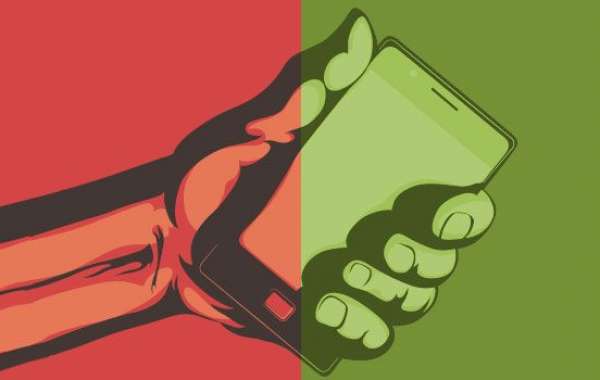Like many of us, I spend too much time on my phone. And, like many of us, I am acutely aware of – and often feel guilty about – this fact.
Sometimes, I'll leave it at the other end of the house, or turn it off, to use it less. But, sooner than I'd like to admit, I'll wind up walking down the hallway for something I need to do that I can only – or can do more efficiently – by phone. Paying a bill? Phone. Arranging a coffee date with a friend? Phone. Messaging family who live far away? Phone. Checking the weather, jotting down a story idea, taking a picture or video, creating a photo book, listening to a podcast, loading up driving directions, making a quick calculation, even turning on a torch? Phone, phone, phone.
It's a vicious circle. The more useful our phones become, the more we use them. The more we use them, the more we lay neural pathways in our brains that lead to pick up our phones for whatever task is at hand – and the more we feel an urge to check our phone even when we don't have to. Worries about specific aspects of our hyperconnected world – like social media and its increasingly hyper-realistic beauty filters – aside, what is our reliance on these devices doing to our brains? Is it all bad for us, or are there also some upsides?
As you might expect, with our societal dependence on devices increasing rapidly every year, the research struggles to keep up. What we do know is that the simple distraction of checking a phone or seeing a notification can have negative consequences. This isn't very surprising; we know that, in general, multitasking impairs memory and performance. One of the most dangerous examples is phone use while driving. One study found that merely speaking on the phone, not texting, was enough to make drivers slower to react on the road. It's true for everyday tasks that are less high-stakes, too. Simply hearing a notification "ding" made participants of another study perform far worse on a task – almost as badly as participants who were speaking or texting on the phone during the task.
It isn't just the use of a phone that has consequences – its mere presence can affect the way we think.
In one recent study, for example, researchers asked participants to either put their phones next to them so they were visible (like on a desk), nearby and out of sight (like in a bag or pocket), or in another room. Participants then completed a series of tasks to test their abilities to process and remember information, their problem-solving, and their focus.
They were found to perform far better when their phones were in another room instead of nearby – whether visible, powered on or not. That held true even though most of the participants claimed not to be consciously thinking about their devices.
The mere proximity of a phone, it seems, contributes to "brain drain". Our brains may be subconsciously hard at work in inhibiting the desire to check our phones, or constantly monitoring the environment to see if we should check our phone (eg, waiting for a notification). Either way, this diverted attention can make doing anything else more difficult. The only "fix", the researchers found, was putting the device in a different room entirely.
For example, it's common belief that relying on our phones is atrophying our ability to remember. But it may not be so simple. In one recent study, volunteers were shown a screen with numbered circles that they had to drag to one side or the other. The higher the number on the circle, the more the volunteer would get paid for moving it to the correct side. For half of the tests, participants were allowed to note, on the screen, which circles should go which way. For the other half, they had to rely on memory alone.
Unsurprisingly, being able to access digital reminders helped their performance. More surprisingly? When they used those reminders, it wasn't only the (high-value) circles participants jotted down that they remembered better – it was (low-value) circles they hadn't written down, too. The researchers think that, having entrusted the most important (high-value) information to a device, the participants' memories were then freed up to store the low-value information.







